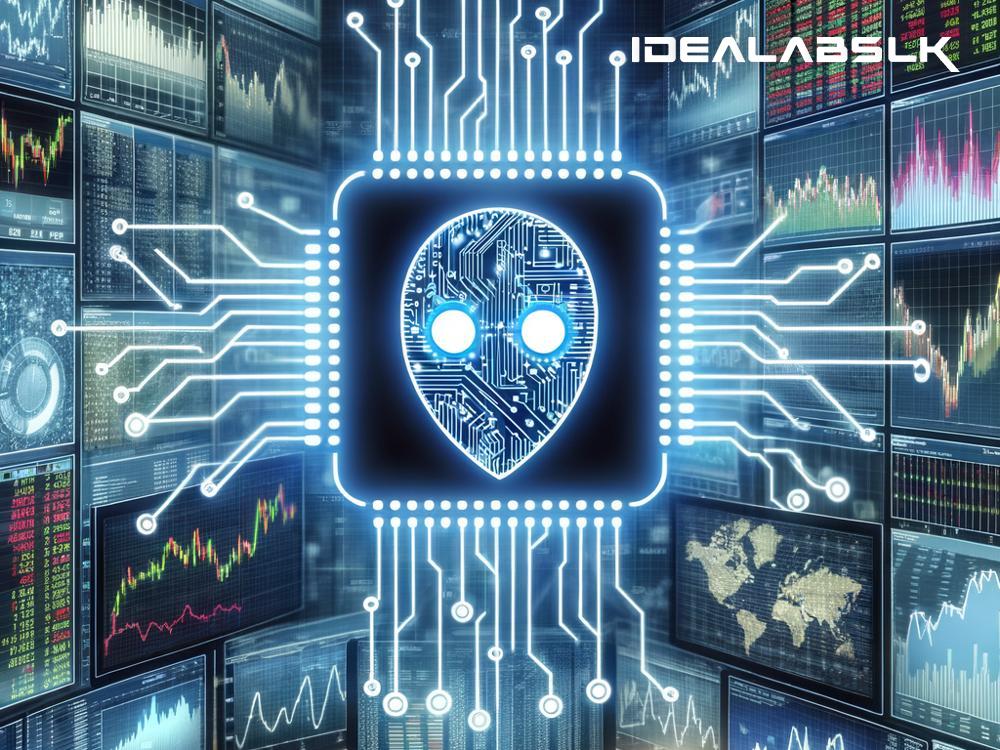AI in Trading: Unleashing the Power of Machine Learning in the Stock Market!
In the bustling world of stock trading, where every second counts and fortunes are made and lost in the blink of an eye, traders are always looking for an edge. Enter Artificial Intelligence (AI) — the game changer that's transforming the stock market landscape with its incredible ability to crunch numbers, analyze trends, and make predictions at lightning speed. Today, let's dive into the fascinating world of AI in trading and see how machine learning models are revolutionizing the way we approach stock trading strategies.
What's the Big Deal with AI and Machine Learning?
Imagine you have a super-smart friend who can read through thousands of books, reports, and news articles in seconds, remember every bit of information they've ever seen, and then make incredibly accurate predictions about what's going to happen next. Well, that's kind of what AI and machine learning do for stock trading!
AI refers to computer systems that can perform tasks which normally require human intelligence. Machine Learning, a subset of AI, goes a step further by allowing these systems to learn and improve from experience without being explicitly programmed. This means they get better at making predictions over time as they process more data.
Turning Data into Gold
The stock market generates an overwhelming amount of data every day. From stock prices and trading volumes to economic reports and corporate news, there's a treasure trove of information that can influence market movements. The challenge for traders is analyzing this data quickly and accurately to make informed decisions.
This is where AI shines. Machine learning models can sift through this vast ocean of data in real-time, identifying patterns and trends that might be invisible to the human eye. They can analyze how different factors interact with each other and predict their impact on stock prices. This allows traders to make smarter, data-driven decisions.
Predicting the Future
One of the most exciting applications of AI in trading is predictive analytics. Machine learning algorithms can be trained to forecast future market movements based on historical data. While predicting the stock market is notoriously tricky, and no system can do it with 100% accuracy, AI-powered models can significantly increase the odds of making profitable trades by providing insights that would take humans much longer to uncover if they could at all.
Automated Trading Strategies
Perhaps the most revolutionary impact of AI in trading is the rise of automated trading systems, also known as algorithmic trading. These systems use machine learning models to execute trades at superhuman speed and volume based on specific pre-set criteria. For instance, an algorithm might be programmed to buy a stock when its price drops below a certain level or sell it when a particular economic indicator exceeds expectations.
Automated trading takes the emotion out of trading, allowing for more disciplined and consistent strategies. It can also execute trades much faster than a human could, capitalizing on fleeting market opportunities.
Enhancing Risk Management
Risk management is a critical aspect of successful trading. AI and machine learning can significantly improve risk assessment by analyzing the risk associated with different trading strategies under various market conditions. By understanding the potential outcomes and their probabilities, traders can better manage their portfolios, minimize losses, and optimize returns.
Challenges and Ethical Considerations
Despite its enormous potential, AI in trading is not without its challenges and ethical dilemmas. There are concerns about the lack of transparency in how some AI systems make decisions ("black box" problem), the potential for manipulation, and the risk of exacerbating market volatility. Moreover, the increasing reliance on automated systems could potentially lead to job displacements in the financial sector.
The Future Is Here
AI's role in trading is only set to grow in the coming years. As machine learning algorithms become more sophisticated and access to big data expands, their predictive accuracy and operational efficiency will only improve. This doesn't mean human traders will become obsolete. Instead, the most successful traders will likely be those who can best leverage the power of AI to complement their skills and insights.
In conclusion, the integration of AI and machine learning into stock trading is not just improving existing strategies but also creating new opportunities for market participants. By making sense of massive data sets, predicting market trends, and automating complex trading strategies, AI is truly transforming the landscape of stock trading. As we look to the future, the synergy between human expertise and artificial intelligence will undoubtedly be at the forefront of continued innovation in the financial markets.

